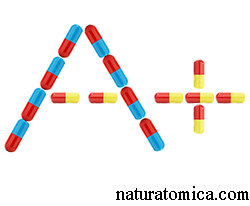Neurologists Issue Warning Not to Use ADHD Drugs Simply for Studying
 In a new statement from the American Academy of Neurology, physicians warn about the medical and ethical implications of prescribing mood-altering and attention-boosting drugs to healthy children and teenagers.
In a new statement from the American Academy of Neurology, physicians warn about the medical and ethical implications of prescribing mood-altering and attention-boosting drugs to healthy children and teenagers.
Researchers said the number of diagnoses and prescriptions have risen dramatically over the last two decades. The drugs in question are stimulants typically used to treat deficit hyperactivity disorder (ADHD).
Lead author Dr. William Graf emphasized that young people who truly have this disorder clearly benefit from treatment. However, these medications are increasingly being used by healthy youth who believe the use of these drugs will enhance their performance and concentration in school.
It is believed over 1.5 percent of eighth graders and 7.5 percent of 12th graders have taken the stimulant Adderall for nonmedical reasons, according to the National Institute on Drug Abuse. While some of the medications are obtained legally from medical practitioners, others are being purchased on the street from the students' peers.
According to Graf, the increase in such use and the volume of use dramatically increase the possibility of overtreatment and over diagnosis. Graf made the statement from Yale University in New Haven, Connecticut.
Graf and his colleagues published their findings in the journal Neurology. They stressed physicians should not prescribe to teens who request (against their parents' advice) drugs to enhance concentration.
Graf and his co-authors conclude that prescribing such drugs to healthy kids and teens in general cannot be justified.
"You're giving amphetamines to kids," concluded Graf. "I think we have to be worried about how that affects the brain, mood, rational thought . . . and we don't have enough data about that that yet," he told Reuters Health.
A pharmacy researcher from the University of Florida agreed and stated that not much is known about the effects of stimulants long-term. Almut Winterstein said this is yet another reason to be careful and to be sure the drugs are really necessary for a specific child. She added that stimulants in the short-term increase blood pressure and heart rate.
Winterstein went on to say that children who are able to sit still and do not seem to have a problem focusing on a given task will not be helped at all by a stimulant. One of her concerns is that "many parents believe that if their child doesn't do well in school, they must have ADHD."
Posted in Neurologists Issue Warning Not to Use ADHD Drugs Simply for Studying
Ask a Question Or Join a Discussion


